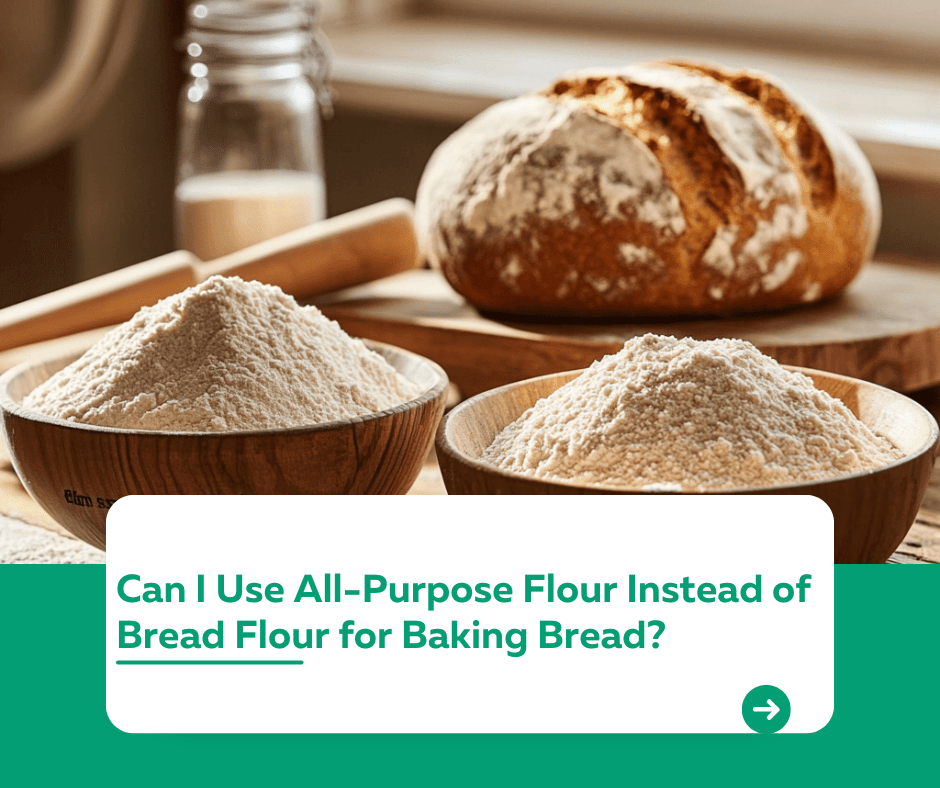
Introduction
“Can I use all-purpose flour instead of bread flour for baking bread?”
Yes, you can! However, there are important differences between the two types of flour that can affect the outcome of your bread. In this guide, we’ll explore how all-purpose flour and bread flour differ, when it’s appropriate to substitute one for the other, and tips to make the best bread with what you have on hand.
1. The Difference Between All-Purpose and Bread Flour
- All-Purpose Flour:
- Protein Content: 10–12%.
- Texture: Produces softer, less chewy bread.
- Best For: Quick breads, cakes, and cookies.
- Bread Flour:
- Protein Content: 12–14%.
- Texture: Creates chewy, structured bread with a crispy crust.
- Best For: Artisan breads, pizza dough, and bagels.
Key Difference: Higher protein content in bread flour results in more gluten development, giving bread its chewy texture and structure.
2. When Can You Substitute All-Purpose Flour for Bread Flour?
Substituting all-purpose flour for bread flour is suitable for:
- Recipes that don’t require strong gluten formation, like soft sandwich loaves.
- Times when bread flour is unavailable.
Tip: Expect a slightly softer, less chewy texture when using all-purpose flour.
3. How to Adjust for Substitution
If you’re substituting all-purpose flour for bread flour, try these adjustments:
- Add Vital Wheat Gluten: Add 1 tablespoon of vital wheat gluten per cup of all-purpose flour to mimic the protein content of bread flour.
- Mix Thoroughly: Knead the dough longer to help develop gluten.
Pro Tip: If your recipe calls for bread flour and you’re using all-purpose flour, monitor the dough closely during kneading and adjust hydration if needed.
4. When Not to Substitute
Avoid substituting all-purpose flour when:
- Baking recipes that rely on high gluten formation, like bagels or artisan sourdough.
- The recipe specifically calls for bread flour to achieve a specific texture and structure.
Tip: For these recipes, it’s best to stick to bread flour or find a specialty alternative.
5. Can Bread Flour Be Used Instead of All-Purpose Flour?
Yes! Bread flour can replace all-purpose flour, but be prepared for:
- Slightly chewier results due to higher protein content.
- Adding a little extra water, as bread flour absorbs more liquid.
Tip: Start by adding an extra teaspoon of water at a time to maintain dough consistency.
Conclusion
Using all-purpose flour instead of bread flour is a convenient substitution that works well in many bread recipes. While it may not provide the same chewy texture, a few simple adjustments can help you achieve great results. Understanding the differences between these flours will allow you to bake delicious bread, even if you don’t have bread flour on hand.
For more baking tips and tricks, visit our Kuestion.com.